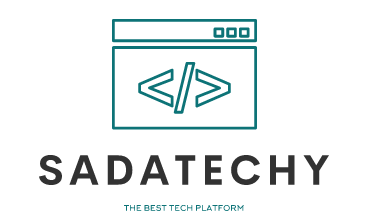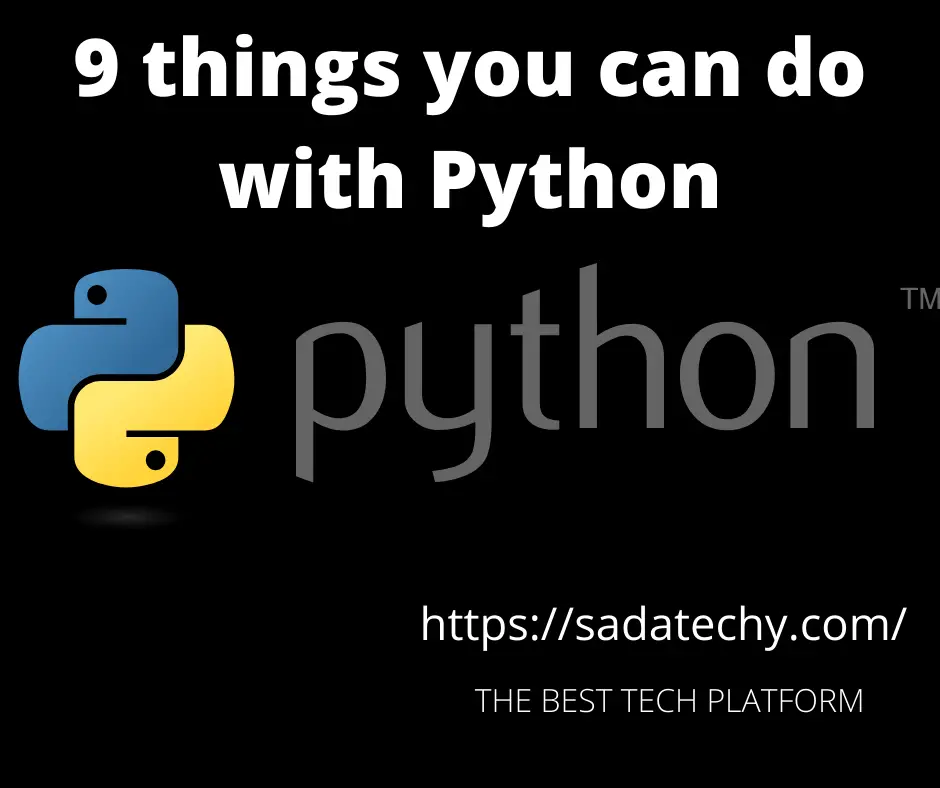A brief explanation of Python, please.
Python’s syntax is quite straightforward, making it a great language for beginners.
When compared to other programming languages like C language or Java, its concise language requirements stand out. It’s a breeze.
This language has gained popularity in recent years due to its application in AI research and development.
A network for infrastructure engineers looking to make a career switch: FEnet Infrastructure.
Here are five careers where you can put your Python skills to work.
Listed below are five careers that might benefit from your knowledge of Python.
As a computer language with many applications, Python knowledge may open doors to many careers.
If you want to study Python, here are five careers where you can put what you’ve learned to good use.
Get a job where your skills will be put to good use. A Data Scientist’s First Look at Python
Python’s data analysis capabilities make it a viable candidate for data scientist roles.
Python’s libraries for numerical computation include “NumPy,” “SciPy,” and “Pandas,” while the language itself offers strong methods for statistical analysis.
As a bonus, data scientists who specialize in activities like data analysis may utilize Python since it is an interpreter language and can be updated while observing the execution results.
Using Python 2 in the Workplace: Advertising
Python’s ability to automate drudgery makes it a useful tool for marketers.
Python allows for the automation of data scraping, the process by which information is gathered from the Internet without the need for human routing.
Python’s data analysis capabilities also make it suitable for marketing tasks that include the collection and evaluation of relevant data.
Job No. 3: Web Application Engineer
To that end, web application engineers might use Python in their line of work.
Web development is another area where Python shines. With Python’s extensive library and framework support, a web application engineer will have a great deal of success creating applications for the web.
Engineer in Python (#4)
Since Python can be used for both system design and programming, it’s a useful tool for Python engineers.
Engineers specializing in Python are known as “Python engineers,” and they utilize the language to create software and analyze data.
As a Python developer, you’ll have a lot of options due to the language’s versatility.
Python 5 careers include those in artificial intelligence engineering.
Python’s versatility makes it useful for the work of AI developers, who can utilize it to build AI systems.
The field of artificial intelligence is seeing a surge at the moment, and Python is a fantastic language for building intelligent systems.
Working as an AI engineer will benefit greatly from knowing Python due to the language’s abundance of frameworks and modules well suited to AI development and machine learning.
Here are nine applications for Python.
A list of nine uses for Python is shown below.
In this article, we have discussed some of the tasks that are well-suited for the Python programming language; nevertheless, as was previously noted, Python has many potential applications.
In such a case, what are our options? Here are nine examples of what you can do using Python.
As an example of what may be accomplished using Python, let’s look at developing Web applications.
Python’s main use is in developing software for the World Wide Web.
While PHP and Java get more attention, Python is the most used language for creating web applications.
Python has been used to create some of the most popular and widely used online apps, like YouTube, Dropbox, and Instagram, and it is well-suited for the creation of large-scale systems that deal with massive amounts of data.
Python’s Many Uses, Part 2: Applied Machine Learning
Machine learning is at the heart of what Python allows for.
Python’s “NumPy” and “Pandas” libraries, for example, specialize in numerical computations that are ideal for machine learning and are therefore essential to the advancement of artificial intelligence.
Since more advancements in AI are anticipated, Python’s relevance in machine learning is only set to grow.
Automation of data collection is only the beginning of Python.
Python enables you to automate the process of collecting data from the web.
To get started with data analysis and machine learning, it is required to gather a massive quantity of data from the internet.
Python’s web scraping capabilities make it feasible to automate the process of gathering information from visual and textual sources, allowing for a significant increase in productivity.
Making Video Games
Making browser-based games is something Python is capable of.
Python is a popular language for building websites because it allows developers to create both online services and browser-based games.
If you’re interested in making a 2D game in Python, you may do it with relative ease thanks to the “Pygame” game creation package.
Analyzing and Processing Data
Python’s strong suit is in data processing and analysis.
Python’s library ecosystem includes several useful tools for data science and processing. When analyzing data, you’ll need to do numerical computations and processing; fortunately, you can do it quickly using libraries like NumPy, Pandas, SciPy, and Matplotlib.
What Python is good for: Making desktop applications
Python is useful for developing desktop applications.
Desktop programs, such as email clients, are built on a personal computer’s operating system, and Python is a great language for creating both web and desktop apps.
Desktop programs may make a variety of jobs more efficient, but their availability is more limited than that of web-based applications.
Embedded application development is a breeze with Python
Python’s primary use is in the development of embedded applications.
An embedded system is a computer system that is physically integrated into another device, such as a smartphone, television, or automobile. The “Raspberry Pi,” a low-cost computer designed to help kids learn, is a well-known example of an embedded Python program.
Furthermore, C languages are often used in embedded systems, although Python is compatible with C-based languages and may be used jointly.
Making mobile apps
Python’s main use case is in the development of apps for mobile devices.
The need for apps on mobile devices has skyrocketed in recent years, and now almost everyone has at least one smartphone; fortunately, Python can also be used to create apps for mobile devices.
Python Android app development is possible using the “kivy” framework, but only on Android devices.
Blockchain Technology: What It Can Do
Python’s main use case is in the creation of blockchain technology.
A prime example of fintech is the blockchain technology behind digital currencies.
Python’s straightforward syntax is key to cutting-edge innovations like blockchain, making even complex systems easier to create.
To what extent are your abilities limited by Python?
Python’s limitations mean that it can’t be used for everything.
So far I’ve discussed some of Python’s strengths and capabilities, such as web applications and AI development. However, there are also certain areas where Python falls short.
In this article, I will discuss two areas where Python shines less brightly: site design and game development.
Create a website
Python isn’t a suitable language for creating websites.
Python’s flexibility as a programming language precludes its usage in web development.
Research markup languages like HTML, CSS, JavaScript, etc. if you’re interested in getting into web design.
video game creation
As a result of its sluggish processing speed, Python is not ideally suited to game creation.
Although I said that Python may be used to create 2D games, the language is not well-suited for making games in general.
Remember that Python’s sluggish processing speed is even slower than that of other interpreter languages, therefore it is not a good choice for developing games that demand fast response times.
Why Bother with Python?
Python is highly recommended for people looking to learn programming or experiment with AI.
So far I’ve only scratched the surface of Python’s capabilities, but the language’s simple syntax and wide range of applications make it a great choice for students just starting in computer science.
Beginners interested in careers in artificial intelligence development, data analysis, and web engineering might benefit from studying computer science.
There Are Three Ideal Techniques for Studying
Here are three strategies for improving your knowledge.
It’s possible that some of the people who are interested in learning Python in the future don’t know where to start.
Please have a look at these suggested resources for learning Python.
Learning Environment for Computer Programming
Python is teachable in a classroom setting.
Taking a programming course is the best option if you want to study Python seriously. Courses in programming are taught by experts, allowing even complete novices to quickly become proficient.
If you’re a novice, you could become irritated when you can’t find an answer to your query or clear up an area of confusion, but in a classroom setting, you’ll have the opportunity to do just that.
Internet-based education
Online courses are another option for studying Python.
Since Python is widely used, you may find enough of resources to teach yourself the language on the web.
Numerous online learning sites are accessible to novices, and these sites come in a variety of formats, such as those that allow you to study without the need to set up your computer setup or others that utilize brief films to teach concepts.
It is possible to teach yourself Python.
Self-study of a programming language by a novice takes roughly 400 hours to reach a level where one can create functional web apps. That is, you need school for roughly three months even if you study for three hours every day.
Python, on the other hand, is more approachable than many other programming languages, and hence it may be argued that it is an excellent choice for self-taught learners.
Master Python
Python is a versatile programming language that can be picked up by novices with little effort and put to work in many different contexts.
Certainly, why not give learning Python a go, especially in light of the careers discussed above that would benefit from your Python knowledge, the tasks for which Python is well suited, and the approaches to learning Python that has proven successful for others?
For more details catch us on Facebook


